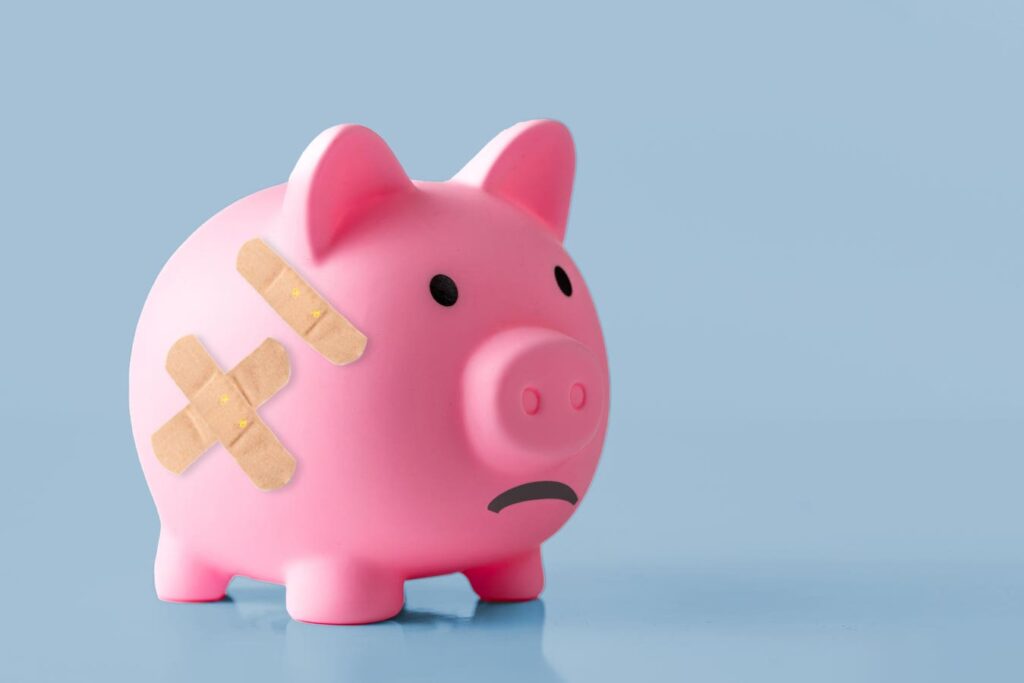Red warning lights are flashing that the U.S. might be entering into a period of stagflation. Key concerns include:
- The inflationary impact of tariffs implemented by President Trump,
- Consumers uneasy about rising prices who might pull back their spending,
- Employers skittish about lower consumer spending who might rein in hiring new workers, and
- The likelihood that the Republican tax bill will increase the federal debt, which could drive interest rates higher.
What can pre-retirees and retirees do to protect themselves if we experience stagflation? Let’s take a look, but first, let’s define the term.
What Is Stagflation?
Stagflation is a period when the price of consumer goods rises at the same time that the economy slows down. The potential impact on retirees’ finances comes from stock market returns that could be flat or negative while the cost of their living expenses rises due to inflation.
Fortunately, stagflation has been rare in the U.S. We last experienced stagflation in the late 1970s and early 1980s, attributed to oil price shocks and policy mistakes. At the time, Federal Reserve Chairman Paul Volcker significantly increased interest rates to tame inflation, which led to a recession with high unemployment in the early 1980s. However, these events also helped set the stage for economic growth later in the 1980s with reduced inflation.
What Impact Will Stagflation Have On Retirement?
Stagflation can negatively impact both sides of the common-sense formula for retirement security:
- I > E, or income greater than living expenses.
If you depend on stock market investments to generate regular systematic withdrawals to cover your living expenses, you could see your retirement income drop. To add to the pain, your living expenses are likely to have increased.
How Can Pre-retirees And Retirees Prepare For Stagflation?
Pre-retirees and retirees can prepare for stagflation by adopting strategies that improve both sides of the common-sense formula for retirement security described above.
Here are some ideas for protecting your retirement income:
- If you haven’t already started taking your Social Security benefits, you’re in luck. Because they increase for inflation, you should use a careful delay strategy to maximize your Social Security benefits.
- Reduce your stock market investments. If you’re worried that interest rates will increase, one strategy would be to reinvest your stock market proceeds with money market funds that will earn higher interest if rates increase.
- Consider working part time or taking in a roommate to help increase your spending power.
Here are some ideas for managing your living expenses:
- Look for ways to decrease your housing expenses. Some possibilities include downsizing your residence and making your home more energy efficient.
- Reduce your transportation expenses by taking public transportation, walking or biking to more activities, and choosing cars that “sip” gas and are cheaper to insure.
- Look for ways to decrease your discretionary living expenses.
Should You Retire During A Period Of Stagflation?
Periods of stagflation are generally a bad time to retire, since your finances are under pressure and there’s a lot of uncertainty. Retiring when your stock market investments have dropped and withdrawing too much from those savings can permanently depress your retirement investments.
However, as evidenced by our experience in the 1970s and 1980s, it might take several years for our economy to overcome a period of stagflation. Given that, you might not want to wait that long to retire or you may be forced to retire if your employer is under stress. In this case, you might want to consider semi-retirement as a strategy to allow your Social Security benefits to grow and to delay tapping into your retirement savings.
We also need to encourage our political leaders to manage the federal debt more responsibly and allow the Federal Reserve to adopt the appropriate policy moves.
Today’s pre-retirees and retirees lived through the stagflation of the 1970s and 1980s. It might have been painful, but we survived by being resilient and making smart choices.
We can do it again!
Read the full article here
